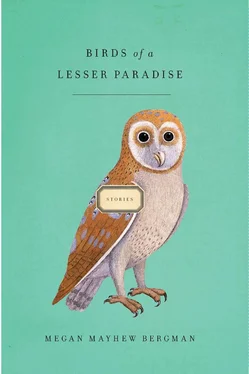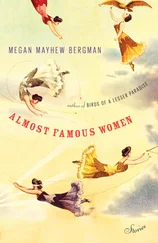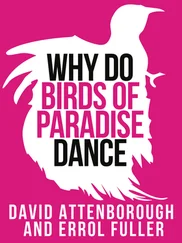Cat Fanciers’ Almanac or Guns & Ammo ? I asked, handing him both.
You won’t be getting this one back, he warned me, holding the magazine fronted by a sleek Japanese bobtail.
I don’t have much love for hobby breeders, I said. Put it to good use.
And this? he asked, holding the camouflaged cover of Guns & Ammo .
Compliments of the local hunters’ association, I said, after the press covered the shelter’s protest on Sunday hunting.
Don’t tell me, he said, shaking his head.
The cormorant made a quick exit from the water and perched at the top of a bald cypress, drying his wings in the winter sun.
Gray carefully inserted the cottonwood leaf into the pages of Cat Fanciers’ . With the toe of his boot he nudged an open sleeve of Laffy Taffy and a condom wrapper that lay in the grass.
There’s a story here, he said, raising an eyebrow.
We cast off in the canoe with a bag of peanut butter sandwiches and a small cooler of beer. Deep as a swan’s neck or not, the water was opaque and choppy.
I looked for the yellow eyes of alligators.
I always count the geese, Gray said, eyes to the clouds. If they aren’t an even flock, something’s wrong. Someone’s been left behind.
One thing I do not understand are sentimental hunters.
Did you scoop the litter before leaving? I asked, already thinking about my house full of pets, the chaos of dinner.
Nope, Gray said, taking a bite of his sandwich.
He’d been mad at me since I’d brought home the last feral cat. I considered his negligence of the litter box just one in a string of rebellious acts.
Gray stared at the sky, inspecting a skein of Canadian geese.
Two, four, six, eight. all’s well, he said, his words tangled in peanut butter.
When we got home, the cats had marked on the couch. Prince had pulled cereal boxes from the recycling bin. Salli had gnawed through two of Gray’s leaf albums, spread the pages and specimens from one end of the living room to the other.
Gray grabbed a fistful of his hair in frustration and knelt next to his chewed albums.
Unacceptable, he said.
I tried to keep the house clean. I kept the closet door closed. I bought a special vacuum cleaner for pet hair. I lit fragrant candles. I wrapped the couch in plastic sheeting. But there were some things I could not control. I said nothing and went to the kitchen for a beer.
As Gray packed, I sat on the living room carpet with my chin on my knees and listened to the sound of him leaving me. He cleared his throat. Walked to and from the closet. Splashed water on his face. Riffled through the junk drawer. Zipped the duffel bag.
Maybe if you can get your life together, he said, pausing at the door.
I accepted his assessment. My mother had felt the same way. Not everyone could live with tumbleweeds of dog hair on the steps, the night sounds of feral cats exploring the house, the raccoon rattling his cage door at two in the morning.
The retrievers came to me, stuck their cold noses on my cheek. Aged and humbled, they looked like orangutans, their cinnamon-and-honey-colored coats matted, their eyes framed in white.
When Gray left, the cats came out of hiding long enough for me to name them.
Two weeks after Gray moved in with his mother, the head of the shelter called.
They finally busted him, Emory said. The suburban shepherd. I’ll be there in fifteen, I said.
Bring your mask and gloves, she said. It’s worse than we thought.
I hung up the phone and took the retrievers outside, topped off the various water bowls around the house, and caged the raccoon. I’d learned early there was no such thing as a raccoon-proof home. I had a hole in my mattress to prove it.
The suburban shepherd lived in a termite-eaten farmhouse on the edge of town. His porch sagged and the paint peeled. A weather-beaten American flag flew from a piece of PVC pipe. There were a handful of small businesses and a chicken joint across the street. A new school was being built nearby. It was an increasingly gentrified area in a good location; the people around him had fixed up their homes and petitioned to have him investigated. There were pens outside, but everyone knew he was also hoarding sheep inside of his house. You could smell them in the heat of the day, see them in the windows at night, strange silhouettes standing on the couch.
I arrived at the suburban shepherd’s house in the late afternoon. Three television news vans were parked out front. The shelter had pulled their mobile unit around back. Two police cars blocked the driveway.
I’m with the shelter, I said to the cop.
He didn’t question me further — my car must have said enough. Most of us shelter folks drove pickups or wagons with the paint nearly invisible under layers of stickers. I Love My Mutt. Woof. Give Wildlife a Break. My Cat Adopted Me at the Hoke County Shelter . The back of my wagon was stuffed with crates and ramps for my special-needs retrievers.
You won’t believe it, Emory said, grabbing my arm and leading me into the house. She was a heavy woman, breathing hard. Her dye job had grown out and her clothes were covered in white cat hair. Emory smelled like cigarette smoke and wet dog, but she was beautiful to me. Powerful. Her voice was loud and her passion was evident. Her eyes flashed when she was interviewed on television. People always say “It takes a special person to do that job.” That person was Emory. She was tireless. She could stabilize an emaciated horse in the morning, trim a goat’s overgrown hooves before lunch, attend a court hearing in the afternoon, and still be home to feed all of the animals she kept herself.
We were the purveyors of the downtrodden and hard to love, the Quaker parrot with a swearing habit, the incontinent Chihuahua, the tetraparetic Pekingese, the Tennessee scare goat with skin allergies.
And now, sheep. Seventy of them. But Emory could find anything a home.
Show me, I said.
I first met Gray at a Ducks Unlimited banquet. I was disguised as a waitress. Black jeans, black shoes, white button-up.
Emory had a knack for PR. She knew how to get herself on television.
When they turn the music down and cue the mics, that’s when I’ll run to the front, she had said. I know someone in catering who knows someone in event planning, and they’ll give me a signal.
What do you need us to do? I asked.
Bail me out of jail, she said, and winked.
Emory had requested that four shelter workers sign on as temporary waitstaff for the event. We’d been interviewed over the phone by someone who had asked if we were on drugs or had a critical record.
You mean criminal, I had said.
Whatever, she said. You’re slinging plates of microwaved chicken cordon bleu. Can you handle that?
I went to the banquet filled with nervous energy. Here I was, part of a plot that would piss off a hundred semiwoodsy men, some possessing sniper-level accuracy, some already drunk on boxed wine.
As dessert was served, Emory received the signal. She refilled the speaker’s sweet tea and then turned to command the mic.
How can ducks be unlimited if you shoot them? Emory asked the audience. You conserve so you can kill them? So your children can kill them?
She cleared her throat. The screech of feedback from the microphone ricocheted off the walls.
You talk about how to save them, she said. Then you talk about how to hunt them.
An embarrassed man in a bow tie tugged her down from the podium and escorted her out of the room by the elbow.
I finished serving flourless chocolate cakes to a roomful of disgruntled hunters and businessmen, and when the catering staff moved into the dining room for cleanup, I took an extra cake and snuck out the side exit.
Читать дальше












